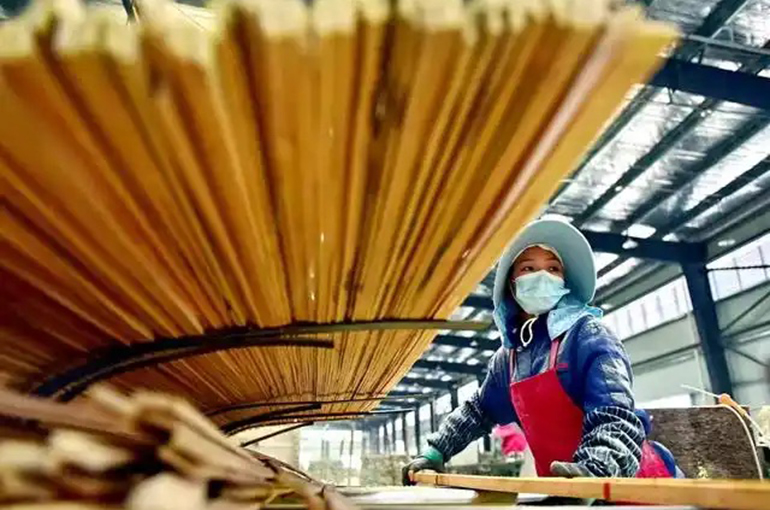 From Helmets to Skateboards: China Adds New Bamboo Alternatives to Cut Plastic Use
From Helmets to Skateboards: China Adds New Bamboo Alternatives to Cut Plastic Use(Yicai) July 8 -- China has introduced an expanded catalog of bamboo-based substitutes, deepening its push to replace certain plastic products with items made from the eco-friendly and fast-growing grass.
Authorities released the updated catalog yesterday, adding new categories of bamboo substitutes in sports equipment, personal protective gear, agriculture and forestry tools, and construction materials. The latest list promotes the use of bamboo in products such as golf tees, skateboards, baseball bats, fishing rods, safety helmets, protective barriers, and traffic cones.
Bamboo, a biodegradable woody grass that can be harvested in as little as three years, is increasingly viewed as a sustainable alternative for packaging, construction, and other industrial applications. China has the largest bamboo resources in the world, spanning a total of 7 million hectares, and is home to more than 10,000 bamboo-processing enterprises.
According to government projections, the domestic bamboo industry is expected to surpass CNY1 trillion (USD139.4 billion) by 2035. A national action plan released in 2023 aims to establish a comprehensive bamboo-based industrial system by this year, with bamboo usage expected to increase by 20 percentage points compared to 2022.
Even before the government push, the industry was expanding rapidly. The output value of China’s bamboo sector rose to CNY415.3 billion (USD57.9 billion) in 2022 from CNY82 billion (USD11.4 billion) in 2010, reflecting an average annual growth rate of over 30 percent.
Chinese companies are innovating new bamboo composite materials. Construction suppliers are marketing bamboo-plastic profiles containing 80 percent bamboo as a novel decorative solution. Bamboo-wrapped composite pipes are increasingly used in water conservancy, transportation, and residential infrastructure projects. Experts predict that if just 5 percent of global vinyl panels were replaced by bamboo-based wall panels, global sales could exceed USD500 million by 2032.
In manufacturing, bamboo is being explored as a biodegradable and energy-efficient alternative to traditional materials like plastic, steel, and cement. Innovations include bamboo-wrapped pipes, bamboo fiber automotive interior components, and bamboo casings for electronic devices.
Editor: Emmi Laine